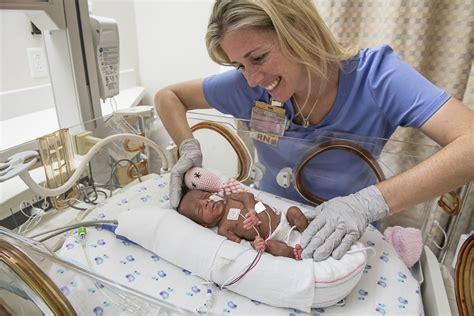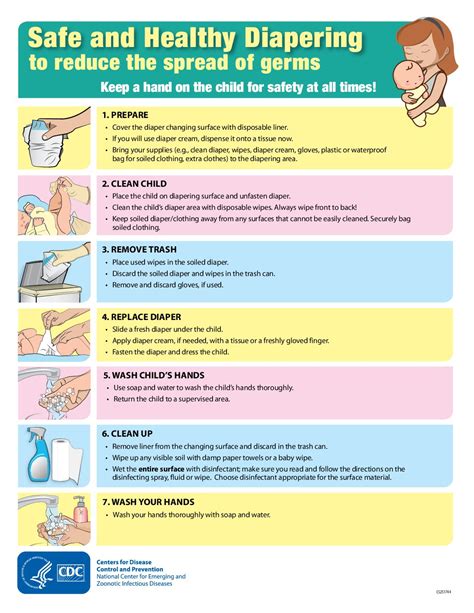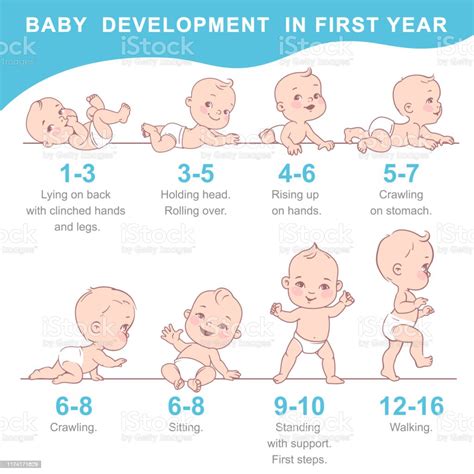
Contents
Introduction
Welcome to “The Ultimate Guide to Baby Care: Everything You Need to Know.” Being a parent is an incredible journey, filled with joy, love, and a fair share of challenges. Taking care of a newborn requires knowledge, patience, and a lot of tender care. In this guide, we will provide you with essential information, tips, and advice to ensure that you are well-equipped to take care of your precious bundle of joy.
Creating a Safe and Comfortable Environment for Your Newborn Baby
Welcome to our guide on creating a safe and comfortable environment for your newborn baby. As a new parent, it is crucial to provide a space where your little one can thrive and feel secure. In this article, we will discuss the essential steps you can take to ensure a safe and comfortable environment for your precious bundle of joy.
1. Preparing the Nursery
The nursery is the heart of your baby’s space, so it’s important to make it safe and cozy. Here are some key steps:
- Choose a crib that meets safety standards and ensure a firm mattress with fitted sheets.
- Organize the nursery with storage for diapers, clothes, and other essentials.
- Keep the room well-ventilated and maintain a comfortable temperature.
2. Babyproofing the House
Your entire home should be a safe haven for your baby. Consider the following measures:
- Secure furniture and anchor heavy items to prevent accidents.
- Install safety gates at stairs and block access to potentially dangerous areas.
- Keep small objects, cords, and hazardous substances out of your baby’s reach.
3. Ensuring a Safe Sleep Environment
Creating a safe sleep environment is essential for your baby’s well-being. Consider the following:
- Place your baby to sleep on their back on a firm and flat surface.
- Keep pillows, blankets, and stuffed animals out of the crib to reduce the risk of suffocation.
- Use a sleep sack or swaddle to keep your baby warm without loose bedding.
4. Maintaining Cleanliness and Hygiene
Proper cleanliness and hygiene practices are crucial for your baby’s health. Follow these guidelines:
- Wash your hands before handling your baby to minimize the spread of germs.
- Regularly clean and disinfect baby’s toys, pacifiers, and other items they come in contact with.
- Keep the diaper changing area clean and use appropriate diaper disposal methods.
5. Creating a Calming Atmosphere
A soothing and calm environment can promote your baby’s well-being. Consider the following:
- Use soft, gentle lighting in the nursery to create a cozy ambiance.
- Play soothing music or use white noise machines to help your baby relax and sleep.
- Engage in gentle activities like baby massage or singing lullabies to create a peaceful atmosphere.
2. Feeding and Nutrition

1. Breastfeeding or Formula Feeding?
Choosing the right feeding method for your baby is an important decision. Consider the following factors:
- Benefits of breastfeeding: Understand the advantages of breastfeeding, including the antibodies and nutrients it provides.
- Formula feeding options: Explore different formula types and find the one that suits your baby’s needs if breastfeeding is not an option.
- Combination feeding: Learn about combining breastfeeding and formula feeding and how to establish a routine.
2. Establishing a Feeding Schedule
Creating a feeding schedule helps ensure your baby gets the right amount of nourishment. Here’s what you need to consider:
- Feeding cues: Learn to recognize your baby’s hunger cues and respond promptly.
- Newborn feeding frequency: Understand that newborns may need to feed every 2-3 hours, even during the night.
- Age-appropriate feeding intervals: As your baby grows, their feeding intervals will change. Stay informed about the recommended guidelines.
3. Introducing Solid Foods
Introducing solid foods is an exciting milestone in your baby’s journey. Follow these guidelines:
- When to start: Consult your pediatrician about the appropriate time to introduce solid foods, usually around 6 months.
- Types of foods: Begin with single-ingredient, pureed foods and gradually introduce a variety of fruits, vegetables, grains, and proteins.
- Food allergies: Be aware of common allergenic foods and introduce them one at a time, watching for any adverse reactions.
4. Ensuring Proper Hydration
Hydration is crucial for your baby’s well-being. Consider the following tips:
- Breast milk or formula as the primary source of hydration: Until your baby starts consuming solid foods, breast milk or formula will fulfill their hydration needs.
- Introducing water: Once your baby starts eating solids, you can gradually introduce small amounts of water.
- Signs of dehydration: Be mindful of signs such as dry lips, decreased urine output, or lethargy, and consult your pediatrician if you have any concerns.
5. Seeking Guidance from a Pediatrician
Your pediatrician is an invaluable resource for feeding and nutrition advice. Here’s why their guidance is essential:
- Regular check-ups: Schedule routine visits with your pediatrician to monitor your baby’s growth, feeding habits, and nutritional needs.
- Addressing concerns: Consult your pediatrician if you have any questions, concerns, or need guidance on specific feeding challenges.
- Individualized recommendations: Every baby is unique, and your pediatrician can provide personalized recommendations based on your baby’s needs and development.
3. Diapering and Hygiene

1. Choosing the Right Diapers
Choosing the right diapers for your baby is a crucial step in providing comfort and preventing leaks. Consider the following:
- Diaper types: Explore different diaper options, such as disposable and cloth diapers, and choose the one that suits your preferences and lifestyle.
- Diaper sizes: Ensure the diapers fit your baby snugly but not too tight, and regularly check for signs of outgrowing the current size.
- Diaper brands: Experiment with different brands to find the one that works best for your baby’s skin sensitivity and absorbs well.
2. Diaper Changing Routine
Establishing an efficient and hygienic diaper changing routine is essential for your baby’s cleanliness and comfort. Follow these steps:
- Gather all necessary supplies before starting: diapers, wipes, diaper rash cream, and a clean changing pad.
- Wash your hands thoroughly before and after each diaper change to minimize the spread of germs.
- Remove the soiled diaper and carefully clean your baby’s bottom with wipes or a damp cloth, ensuring you wipe from front to back for girls.
- Allow the area to air dry or use a soft, clean towel before applying diaper rash cream (if needed) and putting on a fresh diaper.
3. Bathing and Skincare
Regular baths and proper skincare are essential for maintaining your baby’s hygiene and healthy skin. Consider the following tips:
- Bathing frequency: Newborns usually require 2-3 baths per week, gradually increasing as they grow older.
- Water temperature: Ensure the water is comfortably warm, around 37°C (98.6°F), and test it with your elbow or a bath thermometer.
- Using gentle baby cleansers: Choose mild, hypoallergenic baby cleansers and shampoos specifically formulated for delicate baby skin.
- Moisturizing: After bathing, gently pat your baby dry and apply a gentle moisturizer to prevent dryness and keep their skin soft.
4. Nail Care
Trimming your baby’s nails is an important aspect of their hygiene. Follow these tips for safe nail care:
- Use baby-sized nail clippers or nail scissors with rounded edges to prevent accidental cuts.
- Choose a time when your baby is calm and relaxed, such as after a bath or during sleep.
- Hold your baby’s finger firmly but gently and trim their nails straight across, avoiding cutting too close to the skin.
- Take extra caution while trimming the tiny nails to prevent accidental nicks or cuts.
4. Health and Development

1. Well-Baby Check-ups
Regular well-baby check-ups are vital for monitoring your baby’s growth and overall health. Here’s what you need to know:
- Schedule routine visits with your pediatrician to ensure your baby is meeting developmental milestones.
- Monitor your baby’s weight, height, and head circumference to ensure they are growing steadily.
- Discuss any concerns or questions with your pediatrician and seek professional guidance when needed.
2. Vaccinations and Immunizations
Immunizations are crucial for protecting your baby against various diseases. Here’s what you should know:
- Stay updated on the recommended vaccination schedule for your baby.
- Understand the importance of vaccines in preventing serious illnesses and promoting herd immunity.
- Consult with your pediatrician to address any concerns or questions you may have about vaccinations.
3. Developmental Milestones
Monitoring your baby’s developmental milestones is an exciting journey. Here’s what to expect:
- Track milestones such as rolling over, sitting up, crawling, and walking.
- Encourage development through play, interaction, and age-appropriate toys.
- Consult with your pediatrician if you have concerns about your baby’s development.
4. Sensory and Cognitive Development
Supporting your baby’s sensory and cognitive development is vital for their overall growth. Here’s what you can do:
- Engage in activities that stimulate their senses, such as singing, reading, and playing with different textures.
- Encourage exploration and provide a safe environment for your baby to discover their surroundings.
- Offer age-appropriate toys and games that promote cognitive skills, problem-solving, and creativity.
5. Emotional Well-being and Bonding
Nurturing your baby’s emotional well-being and fostering a strong bond is essential. Here’s how:
- Respond promptly to your baby’s needs, including feeding, diapering, and comforting.
- Engage in activities that promote bonding, such as skin-to-skin contact, cuddling, and gentle massages.
- Create a safe and loving environment where your baby feels secure and loved.
5. Bonding and Emotional Well-being

1. The Magic of Skin-to-Skin Contact
Skin-to-skin contact is a powerful way to foster bonding and emotional well-being. Here’s why it matters:
- Hold your baby against your bare chest, allowing their skin to touch yours.
- Experience the warmth, comfort, and security that skin-to-skin contact provides.
- Enjoy the numerous benefits, including regulation of body temperature, improved breastfeeding, and reduced stress levels for both you and your baby.
2. Engaging in Meaningful Interactions
Meaningful interactions create a strong foundation for emotional well-being. Here’s how to enhance your connection:
- Talk, sing, and coo to your baby to develop language skills and promote communication.
- Make eye contact and respond to your baby’s gestures and expressions.
- Engage in playtime activities that stimulate their senses and encourage exploration.
3. Responding to Your Baby’s Cues
Responding promptly to your baby’s needs is essential for building trust and fostering emotional well-being. Consider the following:
- Learn to recognize your baby’s cues for hunger, discomfort, or fatigue.
- Respond with love and care, attending to their needs promptly.
- Establish a routine that aligns with your baby’s natural rhythms, providing predictability and security.
4. Creating a Safe and Loving Environment
A safe and loving environment nurtures emotional well-being. Here’s how to create an environment where your baby can thrive:
- Ensure their physical safety by babyproofing the house and removing potential hazards.
- Offer a comforting and consistent daily routine to provide a sense of security.
- Surround your baby with love, affection, and positive interactions.
5. Cherishing the Power of Touch and Affection
Physical touch and affection play a vital role in building emotional connections. Here’s why it matters:
- Cuddle, hug, and kiss your baby to express your love and affection.
- Massage your baby gently to promote relaxation and relieve any discomfort.
- Use soft and soothing strokes to create a sense of comfort and well-being.
Conclusion
Caring for a baby is a beautiful and rewarding experience, but it can also be overwhelming at times. With “The Ultimate Guide to Baby Care: Everything You Need to Know,” you now have a comprehensive resource to navigate this incredible journey. Remember to trust your instincts, seek support when needed, and cherish every precious moment with your little one. Happy parenting!
